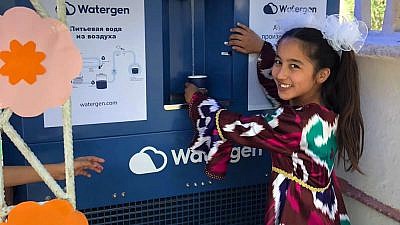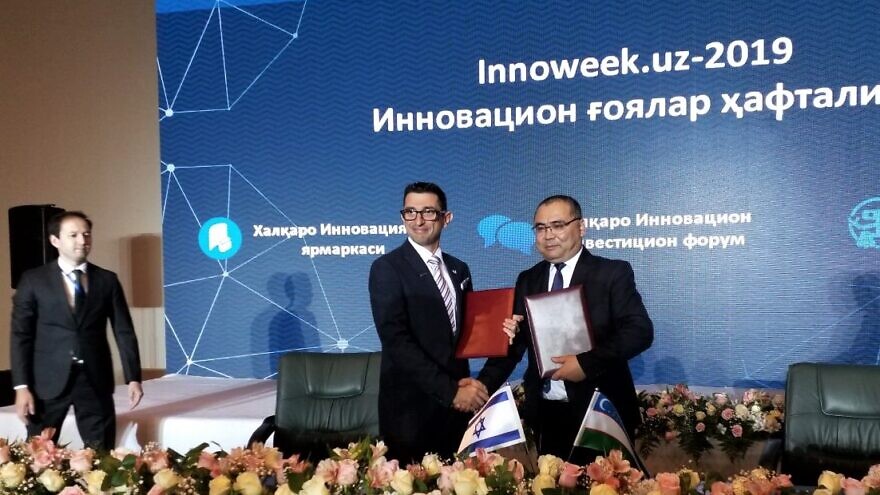The government of Uzbekistan signed a memorandum of understanding with the Israel-based company Watergen in an effort aimed at harnessing and using the company’s patented technology to make clean drinking water out of ambient air.
The agreement was signed on Oct. 29 by Uzbekistan’s Minister of Innovation Ibrohim Abdurakhmonov and Watergen’s vice president of marketing and sales Michael Rutman.
Thousands of GEN-M atmospheric water generators (AWGs) produced by Watergen will be dispatched to different towns and cities in the country facing major water shortages, including in Bukhara and Samarkand.
“We are giving the people of Uzbekistan a safe and simple alternative for dealing with a very difficult problem they are facing,” said Rutman. “Our technology offers the people of Uzbekistan a method to acquire fresh water on a daily basis.”
The Central Asian nation has been in need of a secure water supply, as it’s one of only two countries in the world that is “double landlocked” from the oceanic seas. As a result, it has relied on the Amu Darya and Syr Darya rivers for a fresh-water supply.
In recent years, however, Kyrgyzstan and Tajikistan have established hydro-power dams at the headwaters of both rivers, undermining Uzbekistan’s ability to use them as sources.

The patented, heat-exchange GENius technology in each of Watergen AWGs creates water by cooling collected air at its dew point. Subsequently, the water goes through physical, chemical and biological treatments, followed by a mineralization process to maintain its cleanliness, tastiness and healthy quality.
The technology made a splash during Uzbekistan’s Innoweek 2019 exhibition last week at the Uzexpocentre National Exhibition Complex in the capital of Tashkent.
The annual exhibition, which is attended by representatives from the United Nations and dozens of countries, features new forms of technology to improve the living standards and economic conditions in the country.
On that note, Uzbekistan’s Deputy Prime Minister, Aziz Abdukhakimov said: “In light of Uzbekistan’s water shortage, Uzbekistan desperately needs technology such as that provided by Watergen in order to improve its water sector.”
The GEN-M saw success as part of a pilot project in May at an orphanage in Bukhara that houses 120 children.
Uzbek Jews derive from both the more religious and traditional Bukharan Jewish community, and the more progressive, Europe-extracted Ashkenazi community.
In 1989, as many as 94,900 Jews lived in Uzbekistan, though fewer than 5,000 remained in 2007, mostly in Tashkent. About a dozen synagogues remain in the country.


























